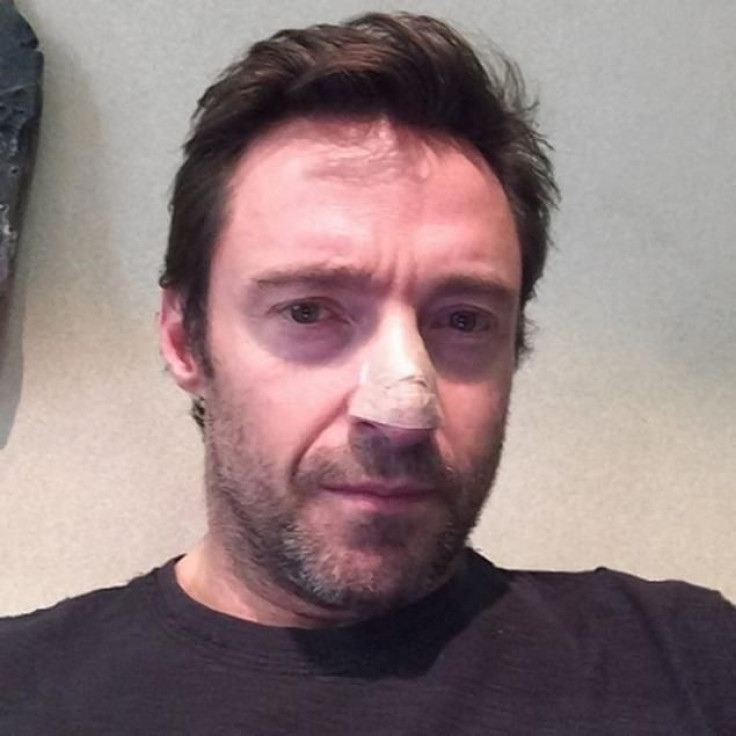Hugh Jackman Gets Skin Cancer Removed From Nose: How Does Basal Cell Carcinoma Develop? [VIDEO]

On Thursday, actor Hugh Jackman revealed that he had skin cancer cells removed from his nose after being diagnosed with basal cell carcinoma.
"Deb (Jackman’s wife) said to get the mark on my nose checked. Boy, was she right! I had a [basal] cell carcinoma. Please don't be foolish like me. Get yourself checked. And USE sunscreen!!!" he wrote in an Instagram post.
Jackman’s cancer, basal cell carcinoma, is a type of skin cancer that begins in the basal cells. Basal cells function by producing new skin cells in order to replace old ones. Symptoms of basal cell carcinoma usually develop on sun-exposed parts of the body in the form of waxy bumps with visible blood vessels, scaly patches, or a scar, according to Mayo Clinic. Basal cell carcinoma is believed to develop as the result of exposure to ultraviolet radiation from the sun, tanning lamps, and tanning beds. People who spend a lot of time in the sun, have fair skin, have a family history of skin cancer, or have been exposed to arsenic are among those at the highest risk of getting basal cell carcinoma.
After diagnosis, treatment for the basal cell carcinoma can be approached in any number of ways, depending on the severity of the disease. Possible treatments include surgery to remove the cancerous tissue, freezing the cancerous cells through cryosurgery, or even using a topical cream or ointment.
According to the Skin Cancer Foundation, basal cell carcinoma is the most frequently occurring form of skin cancer, with about 2.8 million cases in the United States each year. If one in three new cancers is a skin cancer, most of those new ones are basal cell carcinomas. Though not usually deadly, if the disease goes untreated, it could lead to disfigurement.
Luckily, Jackman’s wife spotted the carcinoma in time to successfully treat it. Watch the video below for a full report on the actor’s diagnosis:



























